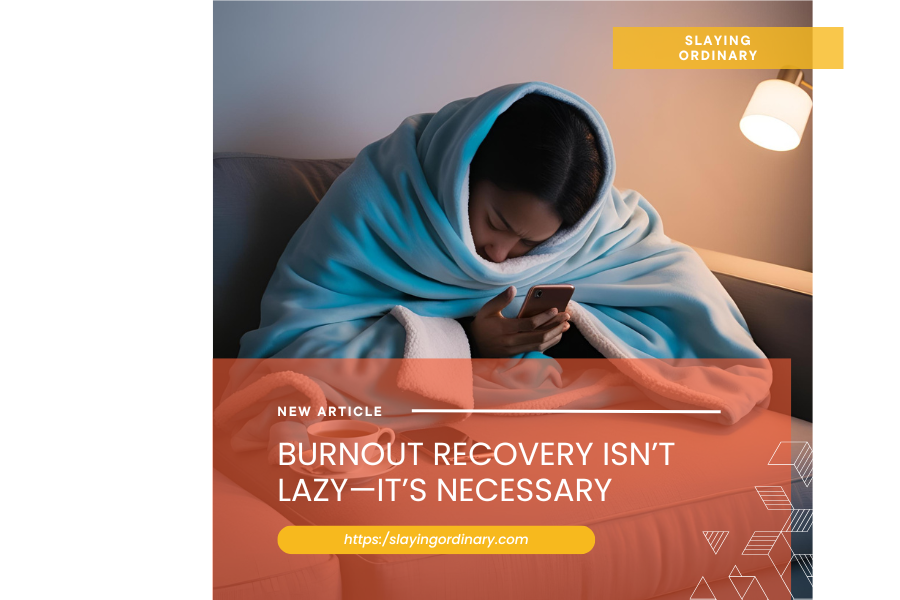
Burnout Recovery Isn’t Lazy—It’s Necessary
If rest makes you feel guilty, the system’s the problem. Not you.
Burnout Is Not Just Being Tired
When neurotypical people say they’re burned out, they usually mean they’re tired or overworked.
When neurodivergent people say they’re burned out, they often mean:
-
I can’t initiate basic tasks
-
I cry when I brush my teeth
-
My body won’t move but my brain won’t shut up
-
I can’t tolerate light, sound, or social interaction
-
I’m terrified I’ll never “come back”
That’s not stress. That’s system failure.
Why ND Burnout Hits Different
Neurodivergent burnout is often the result of:
-
Years (or decades) of masking
-
Constant sensory overload
-
Navigating inaccessible environments
-
Having to translate everything we say or feel
-
Fighting to be understood while pretending to be “fine”
It’s chronic depletion with no recovery window.
Rest Is Not a Reward—It’s a Requirement
You don’t have to “earn” rest by being productive first.
If you’re waiting until you feel functional to take a break, you’ll never get there.
Burnout recovery is active healing. It’s boundaries, silence, food that doesn’t overwhelm, and environments that let you stim, sprawl, and just be.
You’re not lazy. You’re spent.
Here’s How to Start Coming Back to Yourself
You don’t need a wellness retreat—you need less input and fewer expectations. Start small:
-
Stop explaining your “no”
-
Build micro-routines for care (think: “drink water + change shirt”)
-
Reframe what progress looks like (surviving is still progress)
-
Use scripts, prompts, or checklists so your brain can follow instead of lead
Need Support While You Rebuild?
📥 Download our ND burnout toolkit (coming in June):
“5 Low-Spoon Tools for Recovery” – practical, printable support for coming back from the edge.
🖤 Wear your truth while you heal:
“Emotionally Taxed & Still Showing Up” tee now available in all sizes.







